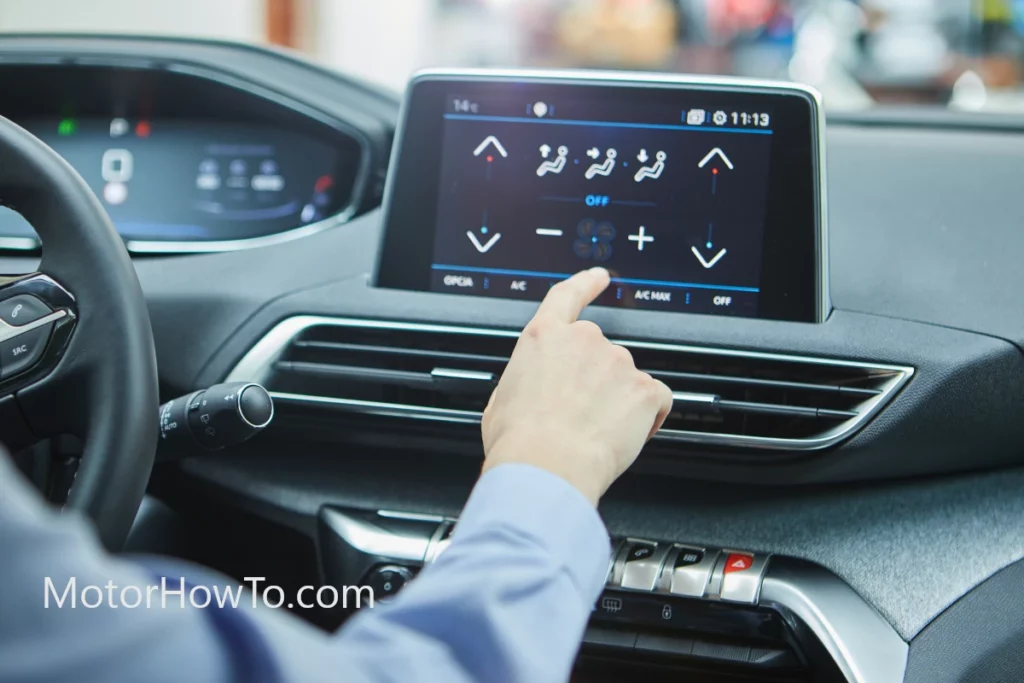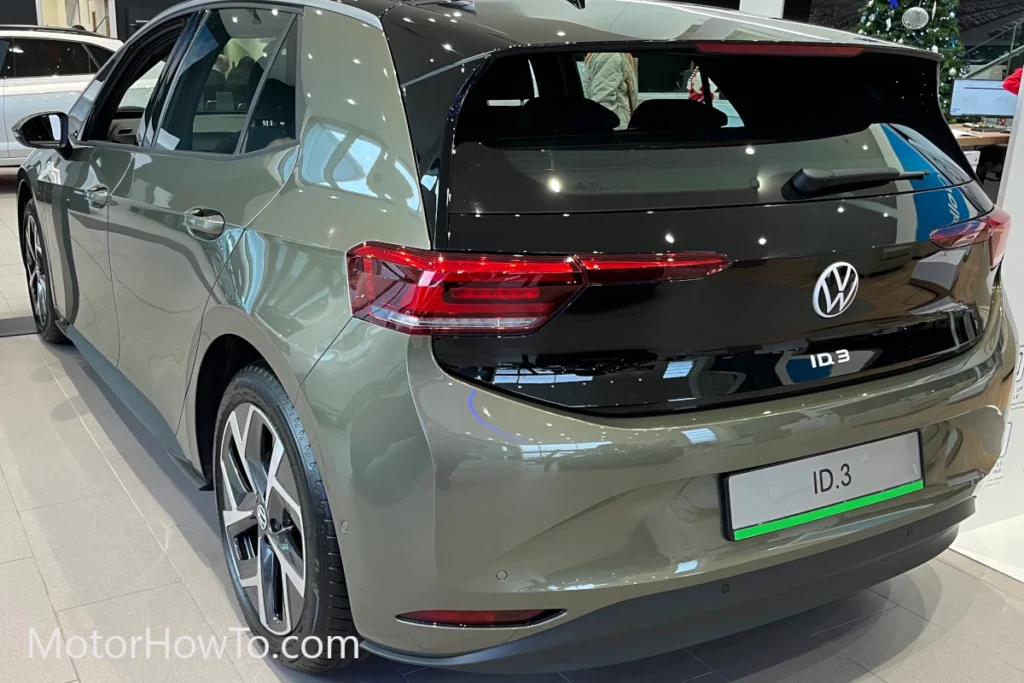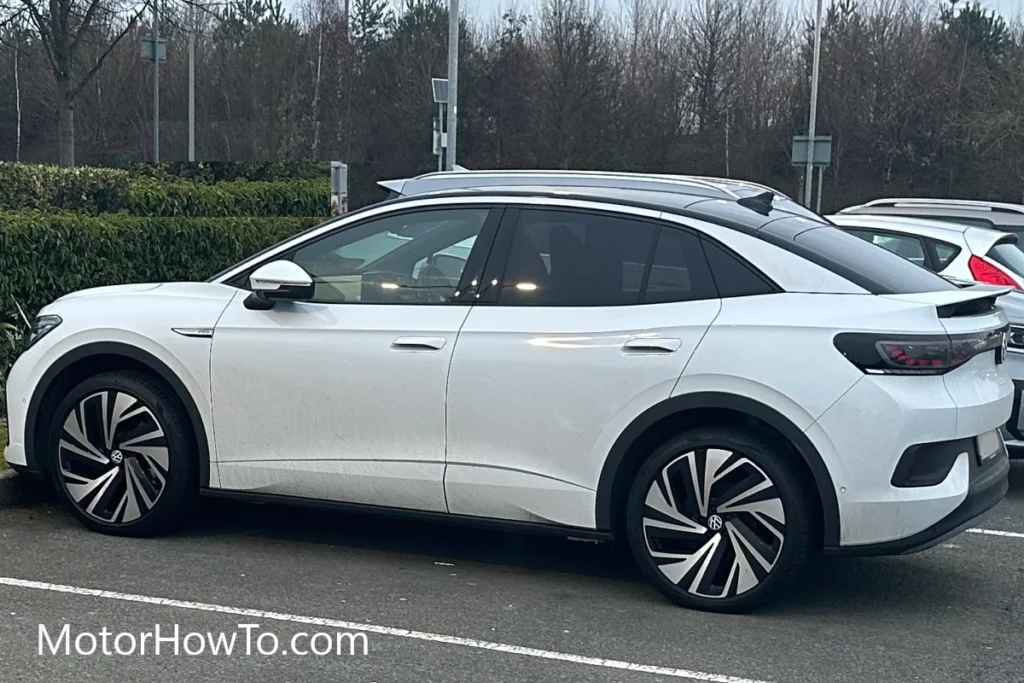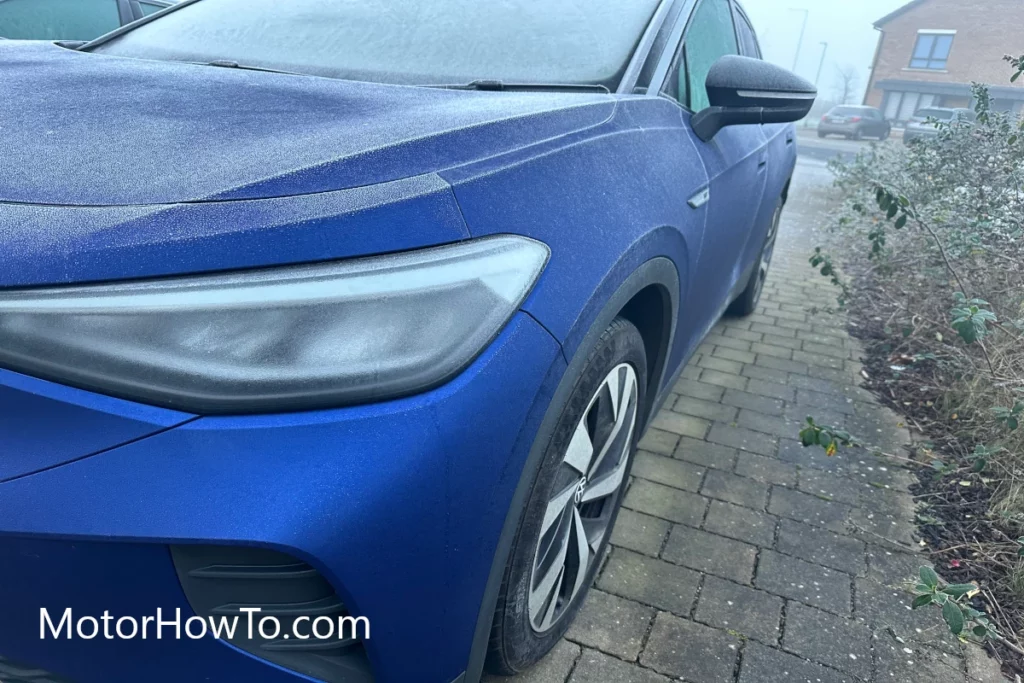As Electric vehicles (EVs) technology matures they are becoming increasingly popular as an alternative to gas-powered vehicles.
While air conditioning is common in gas-powered cars, the energy demands of an EV’s air conditioning system could have significant implications for its range and overall performance.
What happens if the A/C is turned on?
If the EV has the AC on, it will drain the battery faster and reduce the range and duration of the vehicle. Typically, an EV with A/C can last between 3-5 hours, depending on the model and battery size.

The answer to this question is not straightforward, as it depends on several factors, such as the size and efficiency of the EV’s battery, the ambient temperature, the desired cabin temperature, and the driving conditions.
In this article, we will explore the impact of using the air conditioning system in an EV and attempt to answer how long an EV battery can last with the AC turned on.
Related:
- How Do Electric Cars Provide A Heater? (Explained For Beginners)
- How Does The Interior AC And Heater Work In A Tesla? (Explained)
- What Is Dual Climate Control In A Car? (Explained For Beginners)
How Does AC Work In An EV?
Air conditioning (A/C) in an electric vehicle (EV) works similarly to a gas-powered car but with a few key differences.
In a traditional car, the A/C system is powered by the engine, whereas in an EV, it draws power from the battery.
As a result, using the A/C in an EV can significantly impact its range, especially in extreme temperatures.
The A/C system in an EV typically consists of four main components:
- Compressor
- Condenser
- Evaporator
- Expansion valve.
The compressor is powered by the battery and compresses the refrigerant gas, which is then sent to the condenser to be cooled. The cooled refrigerant is then sent to the evaporator, which absorbs heat from the cabin air.
Finally, the expansion valve reduces the pressure of the refrigerant and sends it back to the compressor to begin the cycle again.
The efficiency of an EV’s A/C system depends on several factors, including the below:
- Size and capacity of the battery
- Ambient temperature
- Desired cabin temperature
- Health of the HVAC
- Driving Conditions
Can You Leave The A/C On In An Electric Car?
You can leave the A/C on in an electric car, but it can significantly impact its range. The A/C system in an electric car draws power from the battery, so the more you use it, the faster the battery will drain.
This means that leaving the A/C on for an extended period, such as while parked, can significantly reduce the car’s range and overall performance. To mitigate the impact of the A/C on an electric car’s range, we recommend using it sparingly and keeping the cabin temperature at a reasonable level.
Some electric cars also offer pre-conditioning, which allows you to activate the A/C system remotely before entering the car. This can help reduce the energy used while driving, as the cabin will already be at a comfortable temperature.
It is also worth noting that the impact of the A/C on an electric car’s range will depend on several factors, including the size and capacity of the battery, the ambient temperature, and the desired cabin temperature.
In extreme temperatures, such as very hot or very cold weather, the A/C system will need to work harder to maintain a comfortable cabin temperature, which can further reduce the car’s range.
As with any feature in an electric car, it is essential to be mindful of how it affects the car’s performance and range.
How Much Battery Does A/C Use In An EV?
The amount of battery the air conditioning (A/C) system uses in an electric vehicle (EV) depends on several factors.
- Size and capacity of the battery
- Ambient temperature
- Desired cabin temperature
- Health of the HVAC
- Driving Conditions
The more the A/C system is used, the faster the battery drains, which can significantly impact the car’s range.
Studies have shown that using the A/C in an EV can reduce its range by up to 17%, depending on the temperature and driving conditions.
For example, in hot weather, the A/C system must work harder to maintain a comfortable cabin temperature, which can further reduce the car’s range. Similarly, driving at high speeds or in stop-and-go traffic can also increase the energy demand of the A/C system, further reducing the car’s range.
To maximize the range of an EV while using the A/C, we recommend using the system sparingly and keeping the cabin temperature at a reasonable level. Some EVs also offer a feature called pre-conditioning, which allows the A/C system to be activated remotely before entering the car.
This can help reduce the energy used while driving, as the cabin will already be at a comfortable temperature. Overall, the impact of the A/C system on an EV’s battery will depend on several factors and should be considered when planning a trip.
Does Running AC Affect EV Range?
Running the air conditioning (A/C) system in an electric vehicle (EV) can affect its range. This is because the AC system draws power from the car’s battery, which means that the more it is used, the faster the battery will drain.
For example, driving at high speeds or in stop-and-go traffic can increase the energy demand of the A/C system, further reducing the car’s range.
Similarly, the heating system can also affect the car’s range in very cold weather, as it draws power from the battery.
How Long Can A Tesla Idle With AC On
The time a Tesla can idle with the air conditioning (A/C) system will depend on several factors, including the battery size and capacity, the ambient temperature, and the desired cabin temperature.
The more the A/C system is used, the faster the battery drains, which can significantly impact the car’s range and overall performance. According to Tesla, the Model S and Model X can maintain a comfortable cabin temperature for up to 48 hours while parked, using the car’s battery power.
However, this will depend on several factors, including the outside and desired cabin temperatures. In hot weather, for example, the A/C system will need to work harder to maintain a comfortable cabin temperature, which can reduce the car’s idle time.
It is also worth noting that the impact of the A/C system on a Tesla’s battery will depend on the size and capacity of the battery, as well as the ambient temperature. In extreme temperatures, such as very hot or very cold weather, the A/C system will need to work harder to maintain a comfortable cabin temperature, which can further reduce the car’s idle time.
Overall, while a Tesla can maintain a comfortable cabin temperature for an extended period while parked, it is recommended to use the A/C system sparingly and keep the cabin temperature at a reasonable level to maximize the car’s range and performance.
Conclusion
Using the air conditioning (A/C) system in an electric vehicle (EV) can significantly impact its range and overall performance. The A/C system in an EV draws power from the battery, which means that the more it is used, the faster the battery will drain.
This can reduce the car’s range and duration, especially in extreme temperatures. Using the A/C in an EV can reduce its range by up to 17%, depending on the temperature and driving conditions.
However, some EVs offer pre-conditioning, which allows the A/C system to be activated remotely before entering the car, helping to reduce the amount of energy used while driving.
To maximize the range of an EV while using the A/C, it is recommended to use the system sparingly and keep the cabin temperature at a reasonable level.
The efficiency of an EV’s A/C system depends on several factors such as the below:
- Size and capacity of the battery
- Ambient temperature
- Desired cabin temperature
- Health of the HVAC
- Driving Conditions
It is important to consider how the A/C affects an EV’s performance and range and consider when planning a trip.
Overall, while using the A/C in an EV can impact its range, it is still a viable option for drivers who prioritize the comfort of their ride while also being conscious of their environmental impact.
Sources
Does Running the A/C or Heat Lower Your EV Range?
How Does the Air Conditioning in an EV Work?
How Much Does Climate Control Affect EV Range?
5 Ways to Beat the Heat in Your EV This Summer



